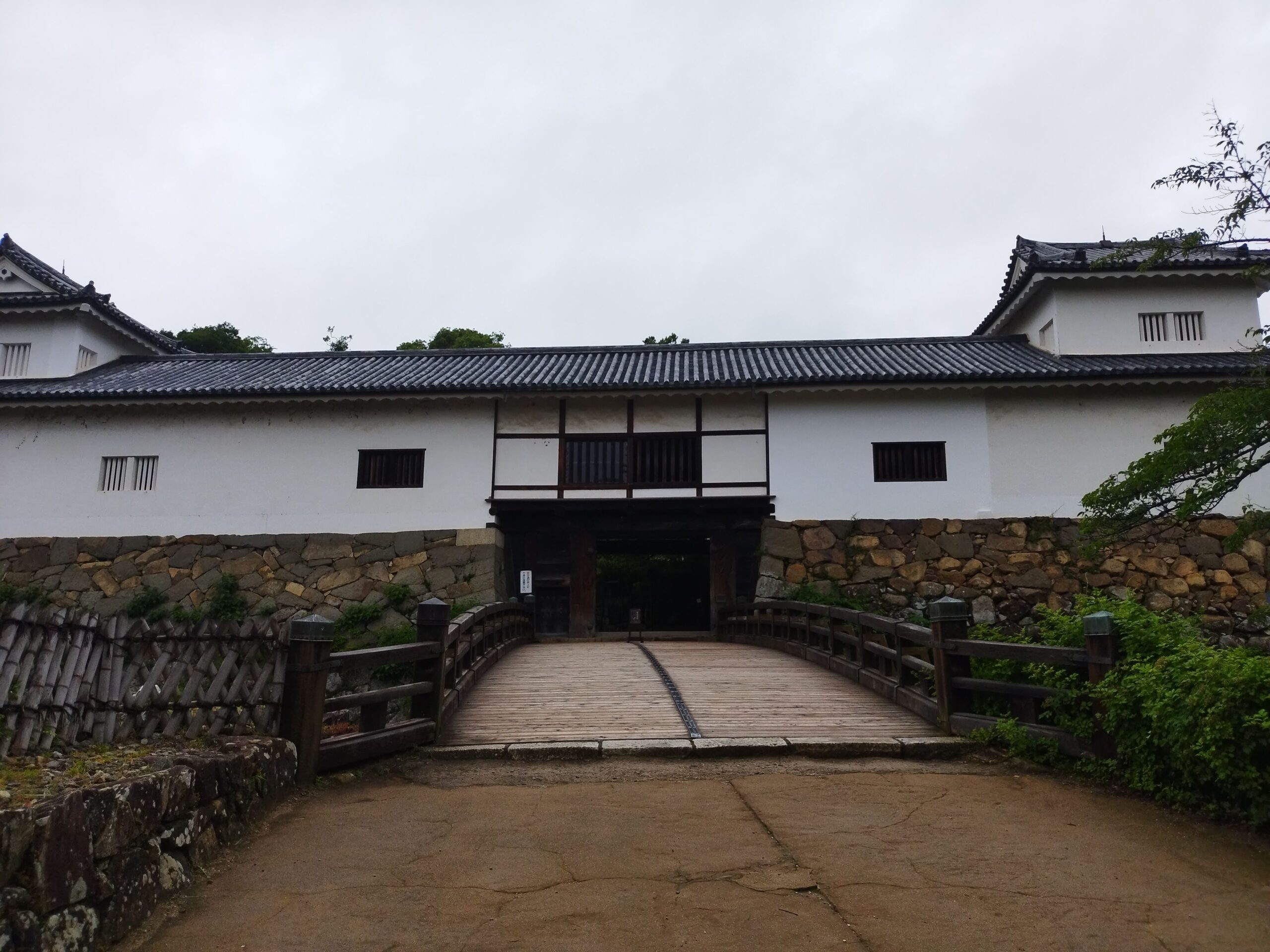本ブログは観光業、企業接待、留学生対応等で英語案内が必要ながら、多忙で準備に時間をかけられない方々の為にすぐに使える情報を分かりやすく解説しています。
今回は『日本の城』わかりやすく解説ブログの《4.城門》の《4.3 笑いが取れるかも?Q1: 何故、枡形門が定着したの?》のA級者用(日→英の対応が必要な方)向け演習ツールです。
👉ショートカット&リンクについて!①最初に音声で学習されたい方はそのままお進みください。➁最初に原文を確認されたい方はへ【原文:日英】③本編ブログを参照されたい方は『日本の城』わかりやすく解説へ。④音声ツールの概要を参照されたい方は『演習ツール』まで!
4. 城門
4.3 笑いが取れるかも?説明例
Q1: 何故、枡形門が定着したの?
“Why did the box-shaped gate become established?”
本項は日英それぞれ13文です。本編ブログでは、日本語音声は1話者、英語音声は前半(1-5)の真面目パートと後半(6-13)のおふざけパートの2話者に分かれていますが、演習ツールも2ファイルに分かれています。
D1:日英確認用:『日本語』”英語”対訳
👉文単位で日本語の後に英訳が續きますので、内容の確認ができます。
D2:口頭即訳用:『日本語』のみ(ポーズ間に英訳)
👉各日本語文の後はポーズになっていますので、その間に英訳できます。
D3:リピーティング用:”英語”のみ(ポーズ無し)
👉英語音声のみが(ポーズなく)続きますので復唱ができます。
D4:内容チェック用:”英語”のみ(低速版:or同通演習用)
👉英語音声(ポーズなし)を低速版で復唱or同時通訳の演習ができます。速さはいつも通り約120wpm(約85%低速版)です。
【原文:日英】
- Originally, the castle gate was a simple structure, reinforcing the regular entrance with watchguards.
- 元々は通常の出入り口の門を警備強化した単純な構成だったのです。
- However, as warfare technology advanced, it evolved into a square-shaped structure.
- しかし戦闘技術が進むに連れて、進化してこのような枡形になりました。
- With two gates and stone walls surrounding them like a trap, enemies would be easily killed.
- 袋の鼠のように2つの門と石垣に囲まれて,容易に殺されてしまうのです。
- But what is intriguing is that this square-shaped gate was the norm at the time, so the enemy should have been aware of it.
- でも、不思議に思うのは、この枡形門は当時の常識だったので、敵もその事は分かっていたはず。
- Why would they willingly fall into such a trap like mice?
- わざわざその罠に自ら入るようなことをしたのでしょうか?
- One possible explanation is that soldiers had no choice but to move forward, even if they knew they would die.
- 考えられることは、死ぬと分かっていても兵隊とすれば前に進むしか、手はなかったのかもしれません。
- If they didn’t advance, they would be denounced as deserters or cowards, bringing shame upon their descendants for generations.
- 前に進まなければ敵前逃亡を理由に裏切り者か卑怯者と子孫の代まで罵られるわけです。
- However, mice have strong reproductive power, leaving behind 10,000 offspring in a year from a pair of mice.
- でも、ネズミは繁殖力が強く二匹のつがいから一年で1万匹の子孫を残します。
- So, perhaps mice might die peacefully in a mousetrap for the sake of their descendants’ honor.
- なのでネズミなら子孫の名誉の為にネズミ捕りで安心して死ねるかもしれません。
- But most human soldiers are young, unmarried individuals. If they die, they cannot leave behind any descendants or honor, can they?
- でも人間の兵士は殆どが結婚前の若者なので、死んだら子孫も彼らの名誉も残せませんよね。
- So, many samurais married at a young age, often in their early teens.
- だからサムライは結婚が早かったんですね。十代前半での結婚が多かった。
- Perhaps it was a good time for young people who’d say, ‘I don’t care about my life as long as I can get married,’ a sentiment that remains true throughout history.
- いつの時代にもいる「死んでもいいから結婚したい」って言う若者には良い時代だったのかも。
- But no one can say whether they’d be happy if, in their early teens, they already understood what marriage really meant—that the castle gate wasn’t the only mousetrap.
- でも十代の若さで結婚の本当の意味を知るのが幸せなのかわかりませんけどね、城門だけがマウトラップじゃないって事をね。
👉 Glossaries (便利用語集)
全体短めなので1~2秒で置きました。
watchguards(警備)warfare technology(戦闘技術)the norm at the time(当時の常識)denounce(罵る) deserter(裏切者)coward(臆病者)mice(ネズミ)reproductive power(生殖力)leave behind offspring(子孫を残す)descendants’ honor(子孫の名誉)
御礼🔶後書き
🔶今回も最後まで読んで頂き大変ありがとうございます。もし何かご意見やリクエストございましたらお気軽に『Help Desk』にてお声がけくださいませ。Gold🔶R70621.V4a.4a.1a/


